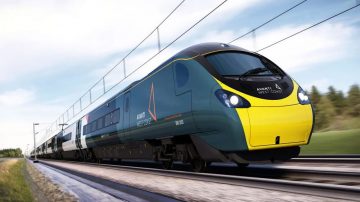
Industry bodies have warned against a potential national rail strike this summer, stating that it would “shatter hopes of recovery for many businesses”.
The RMT union this week announced that its members had voted “overwhelmingly to strike”, in what it said was “t he biggest endorsement for industrial action by railway workers since privatisation”.
A total of 71 per cent of over 40,000 members balloted took part in the vote, with 89 per cent voting in favour of strike action.
It means that companies including Network Rail, Chiltern Railways, Cross Country Trains, Greater Anglia, LNER, East Midlands Railway, C2C, Great Western Railway, Northern Trains, South Eastern, South Western Railway, Transpennine Express, Avanti West Coast and West Midlands Trains could now stage industrial action, with only GTR (including Gatwick Express) voting for “action short of strike”.
The RMT’s general secretary Mick Lynch said that the vote was “a vindication of the union’s approach and sends a clear message that members want a decent pay rise, job security and no compulsory redundancies”.
“Our NEC will now meet to discuss a timetable for strike action from mid-June, but we sincerely hope ministers will encourage the employers to return to the negotiating table and hammer out a reasonable settlement with the RMT.”
Reacting to the news Clive Wratten, CEO of the Business Travel Association, said:
“Strike action from the RMT Union will have a devastating impact on business travel, with many business travellers unable to gain access to crucial work across the UK.
“Business travel has been ravaged by the effects of the pandemic. To strike at such a critical time for the industry will shatter hopes of recovery for many businesses.
“We sympathise with the necessity for job security, but the industry must work together as a whole, instead of prioritising the needs of one group over another.”
Meanwhile UKHospitality’s CEO Kate Nicholls commented:
“A national rail strike would further jeopardise hospitality businesses working hard to rebuild following the pandemic, in the face of rising costs and a fall in consumer confidence.
“Trains are essential across the country for the safe transport of staff and customers. A lack of commuter trains bringing people into towns and cities will further set back the recovery of our high streets and will also deter people from going out in the evening – especially women and vulnerable people who may rely on trains to get them home and feel safe late at night.
“Furthermore, as we come into the crucial summer months, disruption on the rail network will discourage both UK and international tourism – we are already hearing reports from Scotland of cancelled hotel bookings due to the dispute between Aslef and Scotrail there.
“Strikes would inevitably damage our already fragile hospitality businesses, which would have a negative knock-on effect to the wider UK economy.”












